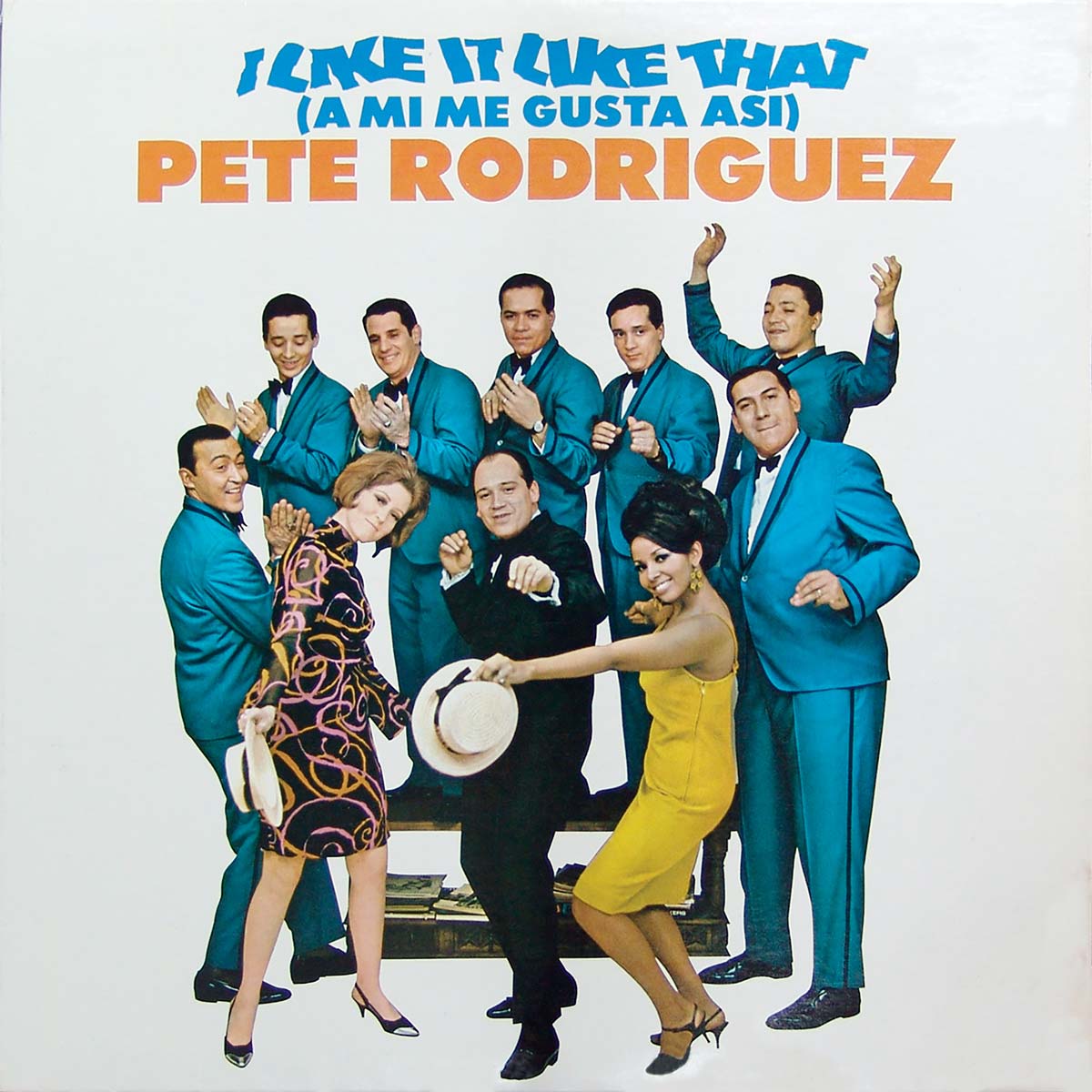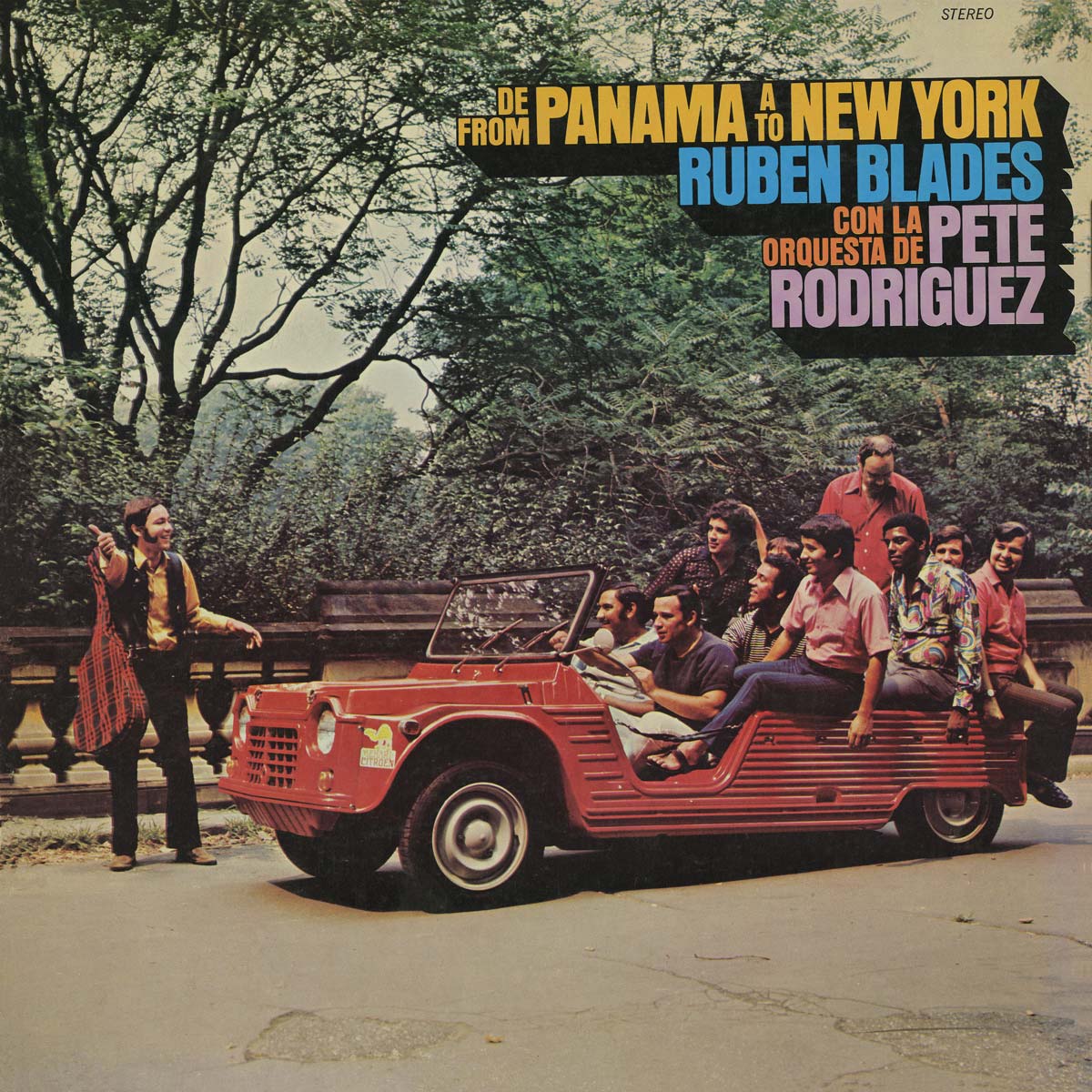
Welcome to Latin boogaloo! What’s that? Boogaloo is the musical style that was all the rage in New York’s Latin music scene in the mid-1960s, just before it became known as salsa. Listen to the hand clapping, the goofy English, Spanish and Spanglish lyrics, the wild party atmosphere, the switching and mixing between Cuban mambo and hot soul sounds, and what you’ve got is boogaloo. And of all the new bands that performed in that short-lived boogaloo era—like those of Joe Cuba, Richie Ray, Johnny Colón, Hector Rivera and Joe Bataan—it’s the Pete Rodriguez y Su Conjunto that is most fully identified with Latin boogaloo.
This bunch of young guys from the streets of the South Bronx rose to overnight stardom and then fell into general oblivion during the boogaloo years—1966 and 1967. What’s more, their signature song and biggest hit, I Like It Like That (A Mi Me Gusta Así is the quintessential boogaloo tune of all time, the heart and soul of that exciting, and somehow prophetic, crossover outburst. Boogaloo has been called the “first Nuyorican music.” That’s because New York born-and-bred Ricans were getting together and jamming their bi-cultural souls out with montunos and jaleos coming from one end and high-charged funk and R&B from the other—while having a blast the whole time!
The title tune alone makes this album a must-have in any serious Latin music collection. You might know I Like It Like That from one of the many cover versions, most notably the chart-topping 1998 hit by Tito Nieves the 1994 movie by that title or the Burger King commercial. But for sheer energy and that contagious hook line, there’s nothing like the original by the Pete Rodriguez band. It is this song—composed, arranged and sung by trumpeter Tony Pabón— that hit the national Billboard charts by becoming a standard of salsa clásica, allowed the group to tour extensively to excited audiences in Latin America and Puerto Rico and put the conjunto on the map of Latin oldies for all time. It’s an oldie, but goodie. And if you listen to the words and the music, the song is actually about boogaloo itself and that’s what makes it such special party music: that blend of English-language rhythm and blues and the “Latin beat.”
Most of the other tunes on the album, like Pete’s Madness, Si Quireres Bailar and Soy el Rey, are irresistibly danceable son montunos and cha cha cha’s in styles and tempos typical of the era, interspersed with breaks and interludes in boogaloo style. The towering musical influences are always the legendary greats of the mambo years, Machito, Tito Podriguez and Tito Puente, and even more directly, the 1960’s era pioneers like Eddie Palmieri and Ray Barretto The other big hit included here is Micaela, the B-side to I Like It Like That, which also was a chart-topper and radio favorite in its day. This one’s a cha cha boogaloo in Spanish, sung by the group’s lead vocalist Alberto González and modeled closely after Joe Cuba’s mega-hit Bang Bang. What’s most impressive about Micaela are the masterly transitions between the Latin and the boogaloo parts of the recording, which both draw out the contrasts and show the similarities between those two musical idioms. Also interesting for historical reasons is 3 and 1, which was the name of a very popular after-hours joint near the Brooklyn Bridge owned and operated by the well-known Latin music producer Ralph Mercado when he was just starting out in the business. The song is dedicated to this beloved hang-out of the musicians, many of whom showed up after the historic dances (remember that?) at the St. George Hotel.
So, welcome to a boogaloo party! It was an exciting era, and one most of us will never forget, and for those who never experienced it, you’ll wish you had! Celebrate the energy, the fun, the great dance music and the musical marriage of young Latinos and Blacks getting together to jam! It was, after all, the height of the Civil Rights Movement and just before the rise of the radical Young Lords Party on those same New York streets where the Pete Rodriguez band rose to fame. This is not political music in any way, but it was the 1960’s, and Latin boogaloo, with its vibrant and youthful energy, was definitely a sound of the times.
Musicians:
Tony Pabon – Lead vocalist in English (including the title song), composer, arranger, trumpet
Alberto Gonzalez – Lead vocalist in Spanish:
Richie Rodriguez – Vocalist
Pete Rodriguez – Band Leader and piano
Angelo Rodriguez, Tony Pabon – Trumpet
Benny Bonilla – Timbales
Manny Rodriguez – Conga
Gilberto Archeval (“Tiny”) – Bass
Producer: Pancho Cristal
Written by Juan Flores



